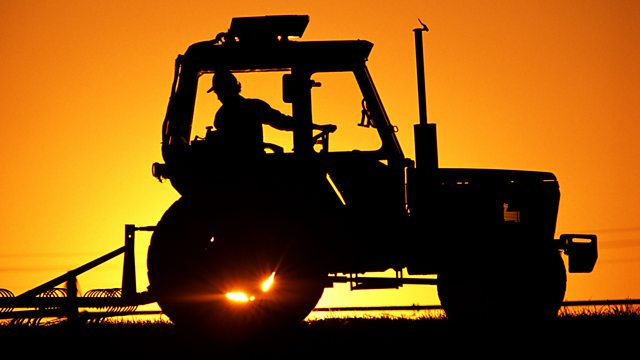
14/10/2011
Charlotte Smith hears how changes to subsidies in Scotland, Wales and Northern Ireland could mean an end to 'slipper farming'.
Charlotte Smith hears how changes to subsidies in Scotland, Wales and Northern Ireland could mean an end to 'slipper farming'.
A reform of the European's Common Agricultural Policy could mean big changes to the way UK taxpayer's money will be spent on food and farming.
At the moment the amount of money paid to farmers in Scotland, Wales and Northern Ireland is based on 'historic payments', the amount of animals on the farm between 2000 to 2002. These historic calculations means that it's perfectly possible, and legal, for farmers to take all the animals off the farm, but still be paid as if they were there. Hence the term 'slipper farming'. Over the next decade, farmers in these countries will be forced to work on a land based system as currently operating in England.
Moira Hickey visits Will Downie, who runs a 250 acre mixed farm near Narin on the Moray Firth in Scotland. He isn't a slipper farmer, but acknowledged that he is, in effect, being paid for animals he no longer has. And Charlotte asks Allan Dowie, vice president of NFU Scotland, if farmers are welcoming change.
Last year controlling the disease bovine TB cost taxpayers Β£91 million in England. New research from Gloucestershire Wildlife Trust says a trial to vaccinate badgers against TB has found it is a viable and affordable alternative to killing them. But at Β£5,100 per square kilometre, that's still significantly more expensive than the Β£200 per square kilometre the government predicted a cull would cost.
Charlotte challenges chief executive Dr Gordon McGlone how he considers it affordable.
Presented by Charlotte Smith. Produced by Clare Freeman.
Last on
Broadcast
- Fri 14 Oct 2011 05:45Βι¶ΉΤΌΕΔ Radio 4
Podcast
-
![]()
Farming Today
The latest news about food, farming and the countryside

